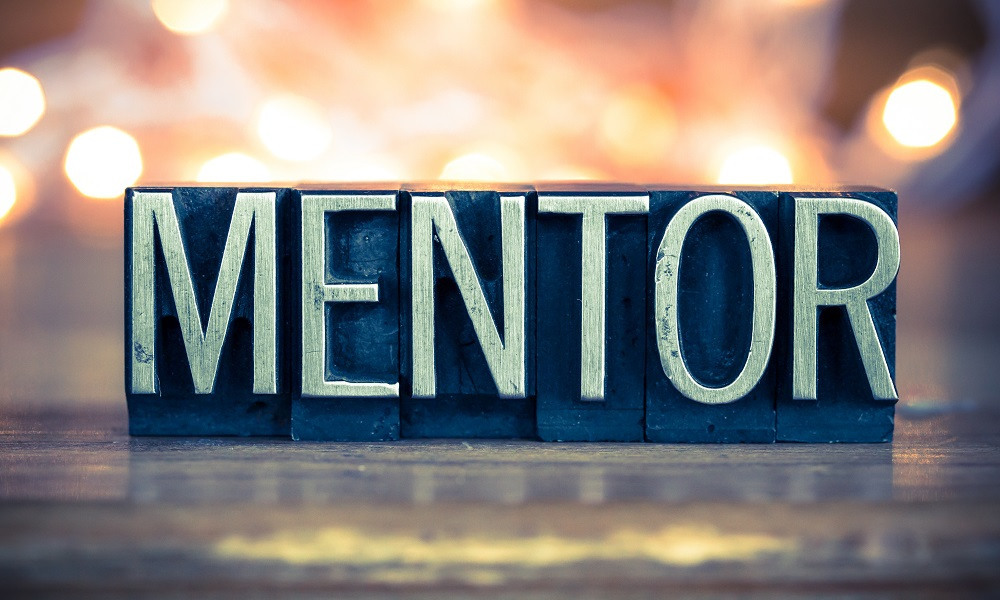This podcast from Teacher magazine is supported by Child Play Therapy at Deakin University. Deakin offers a range of workshops and masterclasses for your professional development. Our annual 2-day Foundations of Child Play Therapy workshop will provide you with practical skills to apply in your current teaching or counselling practice and is also a great introduction to this innovative approach to mental health in children and adolescents. Visit deakin.is/play for more information.
Hello, thank you for downloading this podcast from Teacher magazine. I'm Dominique Russell.
In this episode I'm joined by three guests who are all involved in the Standing Tall in Hamilton program, a not-for-profit, school-based mentoring program based at Baimbridge College in Hamilton, around 300 kilometres from Melbourne in regional Victoria. Standing Tall in Hamilton pairs eligible students in Years 5 to 12 with suitable mentors – who are local volunteers – to meet for an hour each week. The aim is to provide students with support, routine and guidance which can lead to a higher level of engagement in school and openness to educational opportunities. To find out more, Jane Crowe, the program coordinator; Min Youngman, a mentor; and Harley Addinsall, a student; all join me on the line. I start by asking Jane about how the program started.
Jane Crowe: So, the program started in 2003. It ran for a pilot year, when a teacher here, Jeanette Pritchard, identified some students falling through the cracks for many different reasons – school wasn't right for them, or it might have just been their lack of self-confidence, or lots of different issues, but there were kids here that were at risk of disengagement. So, a lot of the research tells you that having a positive relationship outside of your family or your teachers is a really valuable protective factor in growing resilient young people, so she put that program in place back then. We've been running since 2003. It's a much-needed investment in our young people and also a way of connecting them to the community that they live in. It gives them a sense of belonging, knowing that people in their community want to give up their time to invest in them really makes them feel like they're a part of this community. So we mentor during the lunch period. They come and spend a lunch time once a week with their mentor throughout term. So one day a week, it's normally the same day each week, their mentor will come and they'll spend that lunch time together.
Dominique Russell: Mentors for the Standing Tall program are required to sign on to a 12-month mentorship with a student. Here, Jane explains how students and mentors are selected and matched, and how this program relies so heavily on partnerships with the community.
JC: We try to do our very, very best to match them well to begin with, because when you don't get that match right it puts a damper on a relationship if you haven't got that right relationship to begin with. So we do a lot of background questions with the young people – making sure what they're interested in, what their focus is, and we try to match them with somebody we've got on our trained mentors list, to complement them with somebody that will offer them the skills that they will need for the things that they want in life. Hopefully we get it right the majority of the time and that can lead to some really long relationships. Harley is probably one of our longest, being that he started in Grade 5 and I'm sure he'll continue to Year 12 next year. We have a couple of others in Year 12 that have been with their mentors for nearly as long as Harley, so it's quite a common occurrence.
There's been situations where mentors have had to move away for their own personal life, different things happen, and we take each case as it comes. We will talk to the young person and ask them if they would like to continue on with someone else. We have had one young lady that, like Harley, she'd been in it since the beginning of her school journey here, but over that time she had three mentors until she was in Year 12 and each of those brought a different dynamic and had a remarkable impact on her life in different ways. So, that's been a benefit as well.
We're probably blessed to be in a small regional town. We really harness that analogy of ‘it takes a village to raise our children'. We've had a really great partnership with Iluka Mining Resources and they're closing up this year, which is really sad to see for the area, but we've had committee members from Iluka and mentors come in from Iluka which has been a really valuable partnership for us. Some of their staff have come in and been part of the committee of management and brought a really great level of professionalism to our committee, which has really helped us keep the program running. Also with our local community groups like our Rotaries and our Lion's Club, [they've] supported us in many ways as well. So it's been really good to work with those groups. The local Argyle Shop is a furniture op shop, they support us very, very well and we've been able to foster that relationship by sending mentors and mentees down to volunteer for them as a thank you. They support us, so we support them back. So it's just being part of that community really.
We value the community groups that support us. We've got a lot of small businesses, individuals, philanthropists from the local area that help us run the program, but it is a hard thing to find and keep running … it's something that we always feel like we're looking for funding, but it's such a valuable program that we're so grateful to the people that see the value in it and want to support it.
DR: A big part of the program's aim is to provide young people with the opportunity to have a trusting adult outside of their family who will listen to them and encourage them. Harley shares how the program has helped him develop over the years.
Harley Addinsall: I've been in the mentoring program for a good six, seven years now and I've had my mentor Min for my entire time in the mentoring program. I started out as a very shy person and wouldn't really click with anyone, then I joined Standing Tall. I've been here six, seven years, I'm an upcoming school leader, I've put myself down to be on the school council, and I've also done work experience with the Police Force and that's a pathway I'm really hoping to pursue when I finish school.
When Min and I usually meet up on a Wednesday we either go down the street [to] get some lunch or we stay back, play some pool, have some lunch as well, or we actually cook our lunch. When we talk, it's about what's going on and if there's any problems and how to deal with them. The support that a mentor can give a mentee is actually really amazing – it's like an extended-on family.
With the mentoring program we seem to actually ask questions to the mentors and mentees and based on the answers to questions like ‘what are you favourite hobbies?', ‘what do you like talking about?' we experiment and see if they click well. As for mentors and mentees staying together throughout the mentoring program, I've seen it happen a couple times and it's absolutely amazing.
DR: Mentors are required to volunteer for one hour per week after they've been recruited and trained. Here, Harley's mentor Min shares why she began volunteering and how her relationship with Harley has been so rewarding.
Min Youngman: I was a nurse years and years ago, but I am on a farm now. I've had three children and they went away to boarding school. When they left – my work is fairly flexible – so I thought I'd like to help other children if I could as I was missing my own. So I had a couple of girls first and then Harley in Year 5, which was seven years ago. We've been together for that long, so it's been fantastic. I decided it would be nice to do while I was in town, rather than getting any other kind of job, I started doing some volunteer roles and this is one of the ones that really appealed. I could help some of the other children around Hamilton.
It's really just encouragement to give them a focus and something that they may like to do post-school, and get them through as many years of school as they can possibly get. Which, in Harley's case, he's doing really well, he's in Year 11 and ready to do Year 12, so it's fantastic.
Just watching what Harley's achieved, he's a fantastic leader … he got his Ls the other day, and as he said, he's gone and done a bit of work experience in the Police Force so he's quite keen to go and follow that path down the track. So it's just watching him grow and develop and doing really well at school, and yeah, I think they're the main benefits [for the mentors] and what we love to see.
That's all for this episode – to keep listening or to download all of our podcasts for free, whether it's from our series on Behaviour Management, Global Education, School Improvement, Teaching Methods, Action Research or The Research Files, just visit acer.ac/teacheritunes or soundcloud.com/teacher-ACER. The full transcript of this podcast is available at teachermagazine.com.au. That's where you'll also find the latest articles, videos and infographics for free.
This podcast from Teacher magazine is supported by Child Play Therapy at Deakin University. Deakin offers a range of workshops and masterclasses for your professional development. Our annual 2-day Foundations of Child Play Therapy workshop will provide you with practical skills to apply in your current teaching or counselling practice and is also a great introduction to this innovative approach to mental health in children and adolescents. Visit deakin.is/play for more information.
Thinking about your own school context, do you think partnering with the local community to enhance student wellbeing and learning would be beneficial?
Visit the Standing Tall website to find out more about their mentoring program.



